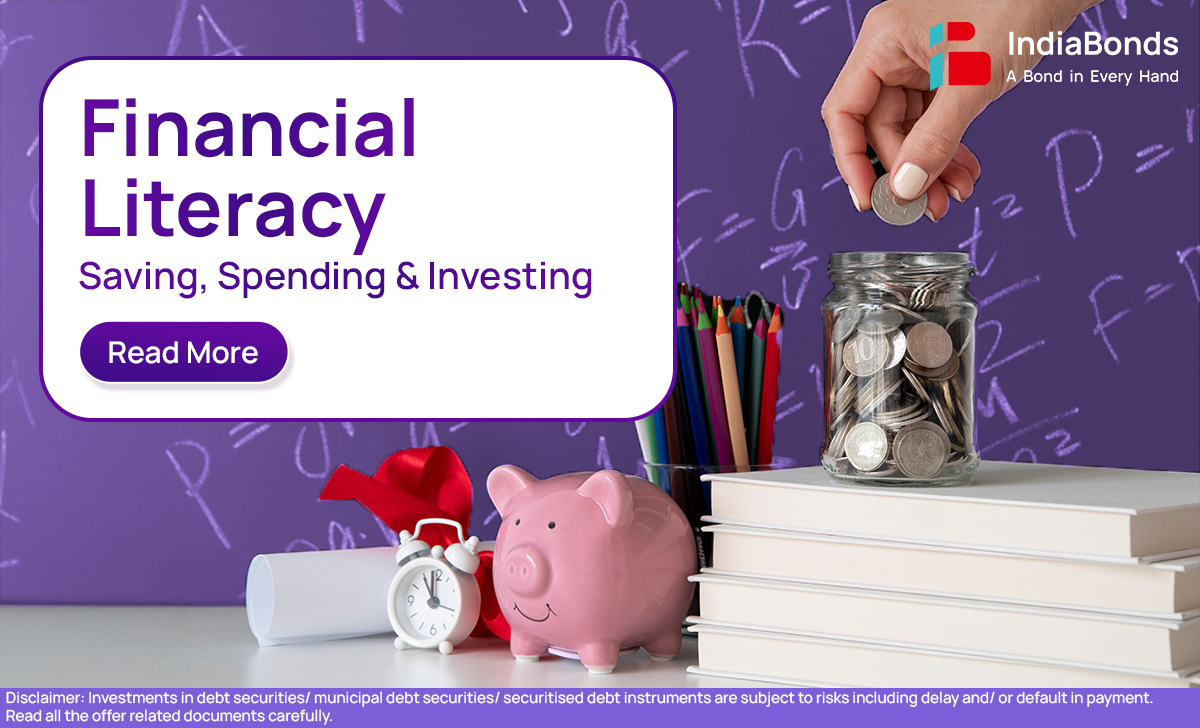Saving, Spending, Investing: Financial Literacy Made Simple

Introduction
Let’s be honest – most of us learned more about the Mughal Empire in school than we did about managing money. I mean, when was the last time knowing Akbar’s reign dates helped you decide between a fixed deposit and mutual funds? Yet here we are, adults trying to figure out taxes, loans, and investments without a clue. Don’t worry though, you’re definitely not alone in this mess.
What Is Financial Literacy?
Financial literacy is basically knowing how to handle your money without panicking every time you check your bank balance. It’s like having a roadmap for your wallet – you know where your money’s going and why. Some people think it’s all about complex calculations and boring spreadsheets, but honestly? It’s more about common sense and developing good habits that stick.
Understanding Financial Literacy
Look, basic financial literacy isn’t about becoming the next Warren Buffett overnight. It’s about grasping simple stuff like why your credit card company loves it when you pay only the minimum amount (hint: they’re making money off you). Or understanding that inflation means your ₹100 today won’t buy the same stuff five years from now. Once these concepts click, everything else starts making sense.
Scope of Financial Literacy
Financial literacy covers pretty much every money decision you’ll ever make. Budgeting your salary, figuring out loans, choosing insurance, paying taxes smartly, and yes – investing too. Think of it like cooking – you need to know about ingredients (income), recipes (budgeting), and techniques (investing) to create something good. Skip any part and you might end up with a financial disaster.
Why Financial Literacy Matters
Here’s a scary truth: people without financial literacy often stay broke despite earning decent money. They get trapped in credit card debt, live month-to-month, and reach 60 with nothing saved for retirement. Meanwhile, those who improve financial literacy early on, they build wealth slowly but surely, sleep better at night, and actually have choices in life instead of just surviving paycheck to paycheck.
Benefits of Financial Literacy
| Benefit | What It Means For You |
| Smart budgeting | No more “where did my money go?” moments |
| Beating debt | Actually paying off loans instead of just interest |
| Emergency ready | Having cash when life throws curveballs |
| Growing wealth | Your money multiplying while you sleep |
| Retirement peace | Not depending on kids or government |
Strategies to Improve Financial Literacy Skills
The internet has made financial literacy for beginners way easier than before. You can find financial literacy online courses that don’t cost a fortune – some are even free. YouTube channels, podcasts, blogs (like this one!) – there’s content everywhere. Many companies also run financial literacy programs for their employees, so check if yours does.
But here’s the catch – just watching videos won’t help. You need to actually do stuff. Start small: track where your money goes for a week. Set up one SIP. Open that PPF account you’ve been postponing. Action beats knowledge every single time.
Example of Financial Literacy
My neighbour Rajesh used to complain about being broke despite earning ₹60,000 monthly. The guy would order food daily, buy gadgets on EMI, and had zero savings. Then his company organized some financial literacy programs, and things changed.
He learned about budgeting and realized he was spending ₹12,000 monthly on random stuff – food delivery, unnecessary subscriptions, impulse purchases. Rajesh started cooking thrice a week, cancelled unused apps, and began saving ₹8,000 monthly. He put half in a liquid fund for emergencies and half in equity mutual funds.
Fast forward 18 months – he’s got ₹1.5 lakhs saved up and finally understands why financial literacy and financial planning go hand in hand. His stress levels dropped, his girlfriend’s happy (she was tired of lending him money), and he’s actually excited about his financial future now.
FAQs
Q: How quickly can someone become financially smart?
A: Depends on how serious you are about it. With consistent effort, you can grasp basics within a couple of months. But financial literacy is like fitness – you don’t just learn it once and forget about it. Markets change, your income grows, life happens. Staying updated is part of the game.
Q: Is financial literacy investing really that different from regular money knowledge?
A: Kind of, yeah. Regular financial literacy covers budgeting, saving, basic planning. Investing financial literacy digs deeper into markets, understanding risk, analyzing different investment options. It’s like the difference between knowing how to drive and becoming a mechanic – related but different skill levels.
Q: Do I need fancy degrees or courses to get financially literate?
A: Not at all! Some of the smartest investors I know are completely self-taught. With all the financial literacy online resources available today, formal education isn’t necessary. What matters is staying curious, reading regularly, and most importantly – actually applying what you learn.
Q: What’s the biggest money mistake people make when starting out?
A: Two things really. First, trying to learn everything simultaneously instead of starting with basics like budgeting and emergency funds. Second, consuming tons of content but never taking action. I know people who’ve watched hundreds of investment videos but still haven’t opened a demat account. Knowledge without implementation is pretty useless.
Bottom line? Financial literacy isn’t rocket science, but it does require some effort. Start wherever you are, with whatever you have. Even saving ₹1,000 monthly is better than saving nothing. Your 40-year-old self will definitely thank your current self for taking this seriously.


















